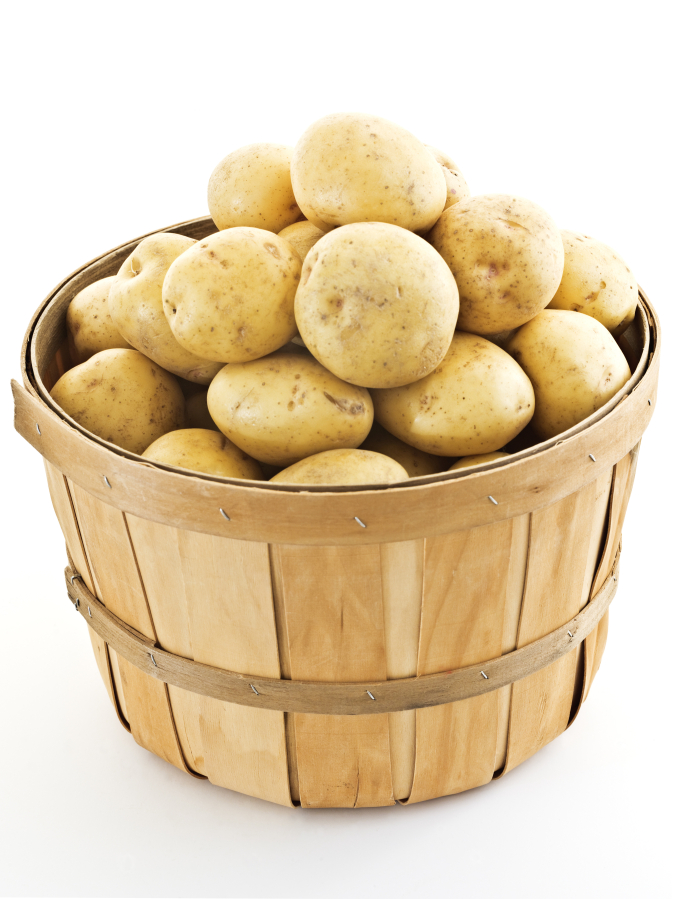One potato, two potato, three potato, four … or more! Do potatoes rock your world? Potatoes can be a part of any meal or snack just like bacon. Mmm … bacon and potatoes! Potatoes are so versatile and easy to prepare.
Potatoes have been given a bad name due to low-carb concerns, however they are full of nutrition that promotes healthy hearts. Potatoes are fat- and cholesterol-free, and the fiber content helps with digestion as well as cholesterol levels. One medium potato contains 160 calories along with daily doses of potassium, vitamin C and B6. What you add to potatoes — such as butter, cheese, sour cream, bacon — or how they are prepared, such as fried, is what makes them less healthy for you.
Potatoes are classified into three categories.
Starchy potatoes are the classic Russet or Idaho potato that are high in starch and low in moisture. The cooked potato is fluffy, dry, and mealy. When boiled, they absorb moisture easily and they will fall apart easily, which makes great fluffy mashed potatoes. They are not the best for salads or casseroles.
Waxy potatoes are low in starch and have a moist, creamy, but firm flesh that holds its shape well after heated. Red skinned and fingerlings are great for soups, casseroles, and potato salads. Other varieties include Austrian Crescent, Purple Peruvian, and Yellow Inca Gold.



